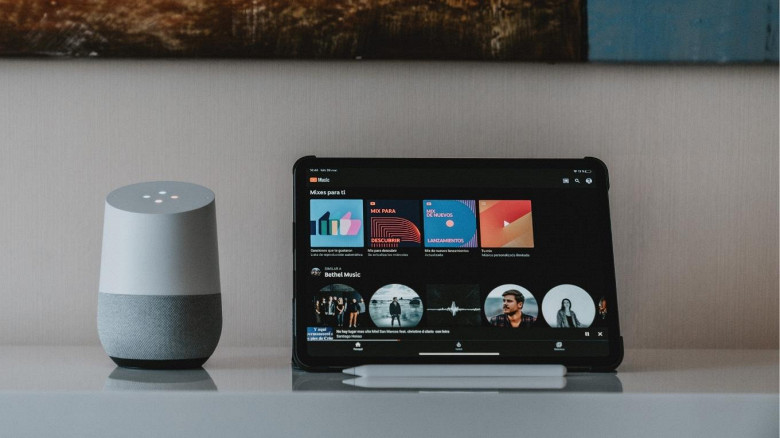
If you think that your smartphone is foolproof when it comes to security, and that you don’t need to worry unless someone else has your phone, you need to look at the facts. While you shouldn’t be paranoid that someone’s going to steal your data, you need to remember to take certain precautions if you want your security to be protected.
Faulty Communication Protocols
The Internet’s rise to the mainstream is one of the bigger achievements in history, and it’s gave birth to many things. While a lot of bad has come from the Internet, many good things have as well.
But when you’re part of a network that is online constantly, there can be problems. Data is no longer just set on one location. You don’t need floppy disks, CDs, or USB drives in order to transport data. Now we use cloud storage and the storage on our mobile devices.
This makes data easier to access. Naturally, developers are trying to take great security measures to make sure your data isn’t stolen. However, people do not encrypt their data, which they can be able to, but they don’t. Why?
People don’t believe it can happen to them. Because they’re not a famous person or a millionaire, they assume that it won’t happen to them. But it can.
Let’s look back at SS7. This was how telecom companies transmit calls and texts. However, security flaws were soon revealed, and it made it easy for anyone to look at your conversation. SS7 was developed in the ‘70s, so it makes sense as to how a 40-year-old system can have flaws. Especially one as complex as SS7.
Now we have the NFC protocol. Being newer, you’d assume that it’s safer, but it’s not. It allows your phones to be able to send data, but it can be hacked into. This protocol actually leaves your phone vulnerable, and people can hack into your smartphone. The RFID chips in your phone can easily be hacked.
If you want your data protected, you need to make sure you have secure connections that keep your data safe against anyone who wants to grab it. If you’re banking on your phone, you better believe that you need to take precautions!
Smartphone Viruses Do Happen
Stop thinking that only a Windows computer can get a virus. Every OS and even smartphones have susceptibility to viruses. Your Android and Windows Phone can be bombarded with viruses, and even the iPhone isn’t safe.
The National Vulnerability Database, along with the information in Common Vulnerabilities and Exposures, revealed that there were at least 200 security flaws in the iOS. That’s about an 81 percent accountability for all smartphones!
Blackberry, Android, and Windows Phones have fewer flaws combined than the iOS has. That is not to say that Apple is horrible, but the fact is that every smartphone can have risks, and with the iPhone being so heavily used, everyone wants to crack inside it.
Flash forward to early this year. It was revealed that a security flaw affected 90 percent of global smartphones. What was that flaw? It came from a standard that was shared by all major devices such as Blackberry, Android, and iOS. This allows hackers to do whatever they want to your data. They can delete it, look at it, and even add their own.
Smartphone security is flawed, to say the least. You can get viruses from almost any place, including app stores, which can have apps that will scam you out of your data. Malware can hit your smartphones and spy on you.
So what is a user to do? You should look at your device and see if it’s acting odd. If it is, download a reliable Antivirus app and see if it contains any viruses or malware. Do not think that hackers don’t care about you. They do, and while you shouldn’t be too paranoid, you should stay safe. Just like you’d lock your car after leaving, you should lock your phone as well.
More Security Flaws
Apple fell under scrutiny early this year after a researcher in security discovered a backdoor that allows entrance in all iOS devices. People claimed that Apple did this on purpose to allow encrypted data to be pulled from the device.
Apple did not deny it, either. They outright admitted that it existed. So anyone can get in that backdoor and grab your data. Are there any more backdoors out there?
Research at the North Carolina State University reveals that 60 percent of apps from ten different Android models could give your phone vulnerabilities, and these apps were from the manufacturer itself.
Not all of them were with the intention of a backdoor; some were just apps that had flaws in them. But it proves that you can’t trust the manufacturers themselves. With government pressure to allow such backdoors, you should always tread lightly.
Conclusion
This is just the beginning when it comes to security flaws. You can get hacked through Wi-Fi and SMS. The smartphone is definitely not as secure as you once thought. So what’s a user to do? One thing would be to make sure that you always be secure whenever you’re on your phone. Encrypt your data, don’t allow unwanted apps to access it, and stay alert!








